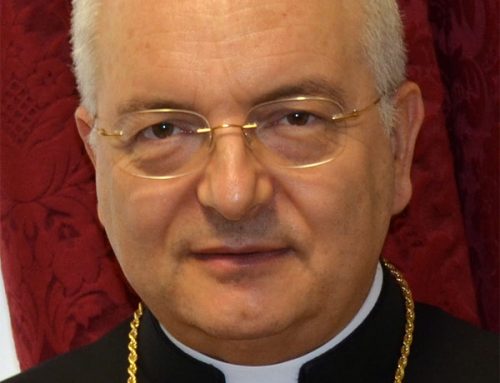Egypt 14Oct. 2015
“We no longer want to be second-class citizens”
A Coptic Catholic bishop is full of hope close to the parliamentary elections in Egypt
Shortly before the parliamentary elections begin in Egypt on Sunday, the Coptic Catholic bishop of Assiut has expressed his optimism. In an interview with the international Catholic pastoral charity Aid to the Church in Need (ACN) on Monday, Bishop Kyrillos William Samaansaid that he was full of hope as regards the composition of the future parliament. “We hope that we will have a good parliament. It is important to have a civil state without extremist tendencies. I believe that the chances are good that we will achieve this kind of majority.” The bishop then expressed hope that religious extremists, such as the Salafist al-Nour party, will not be able to enter the parliament.
Bishop Kyrillosstressed that the church does not make voting recommendations. “The church does not prescribe to its faithful for whom they should vote. We encourage the people to take part in the elections, but they are free to vote for whoever they feel will best represent their interests.” Bishop Kyrillossaid that there is a staggering number of candidates, among them also Christians. Electoral law requires that the electoral lists also include a certain quota of Christian candidates.
The bishop identified the passage of a law on church construction to be the most pressing concern of the Christians in the country. The churches of the country have prepared a joint draft for the reformof the building permit procedure. In contrast to mosque construction, up until this point, the procedure has been fraught with many hurdles that meant that decades would often pass before a new church could be built. “The parliament must address this law, if not in its first session, then very soon. We hope that it will get a majority. Apart from this, we want to ensure that we Christians are treated just like any other Egyptians. We don’t want special rights but equal rights as citizens. We want the principles of the constitution to be reflected in the laws that will be passed by the parliament. We no longer want to be second-class citizens.”
The parliamentary elections are the last part of the political reform of Egypt that has followed the ousting of the Muslim Brotherhood’s Mohamed Morsi by the military in July of 2013. The country has not had a parliament since 2012. President Sisi, who was elected last May with a large majority, has since been governing the country with the legislative powers he holds. The elections, which were originally planned for March of this year, were postponed after the constitutional court raised objections against the underlying electoral law. The elections will take place in several phases for logistical reasons. Some parts of the country will begin voting on 18 October, others will vote in November.
About ten per cent of Egypt’s inhabitants are Christian. The vast majority belong to the Coptic Orthodox church. Most of the approximately 250000 Catholics of the country are members of the Coptic Catholic church.
Aid to the Church in Need has been helping the Christians in Egypt for years. Alone since the beginnings of the political upheavals in early 2011, more than 3.5 million euros have been granted for projects including the construction of churches, the training of priests and the provision of pastoral youth care.
Oliver Maksan.


